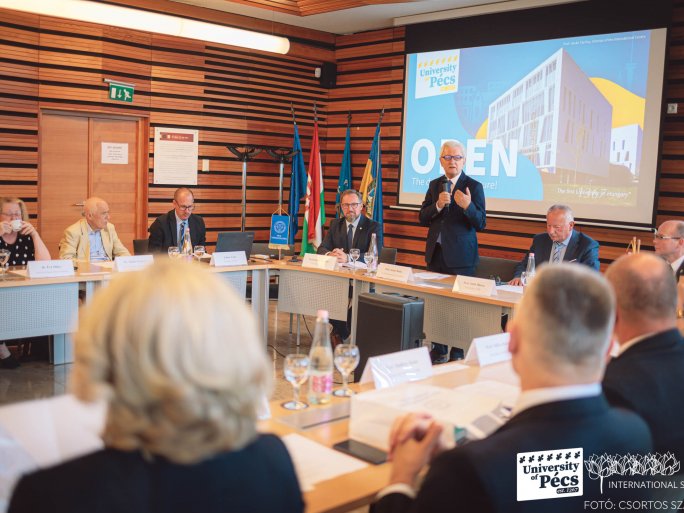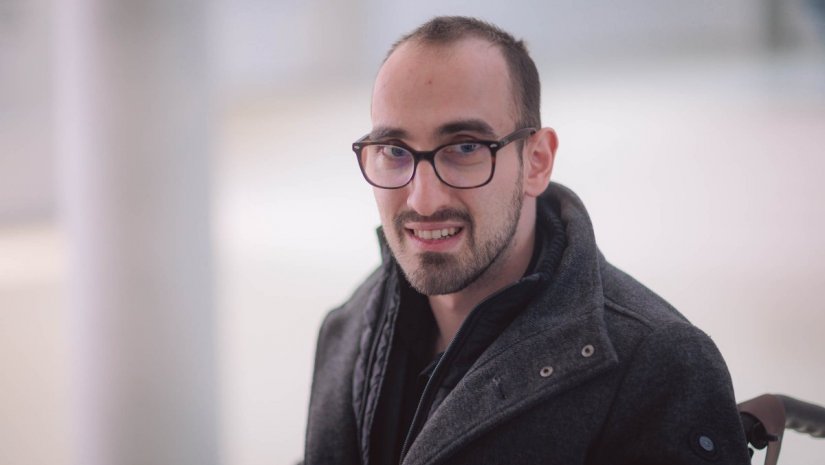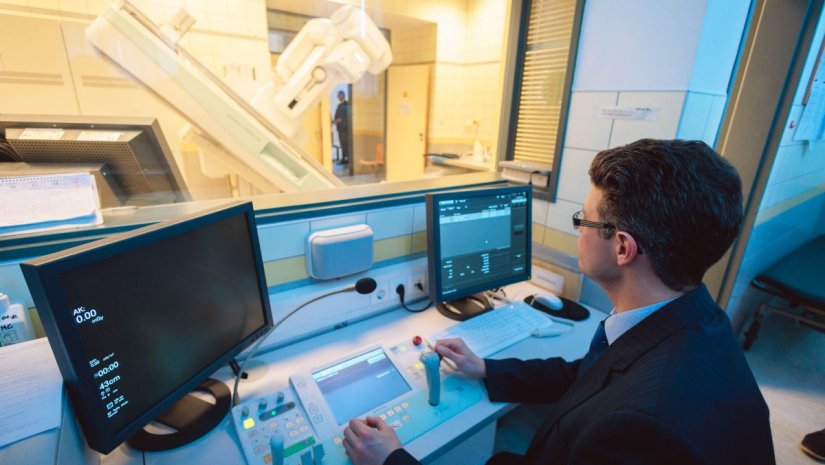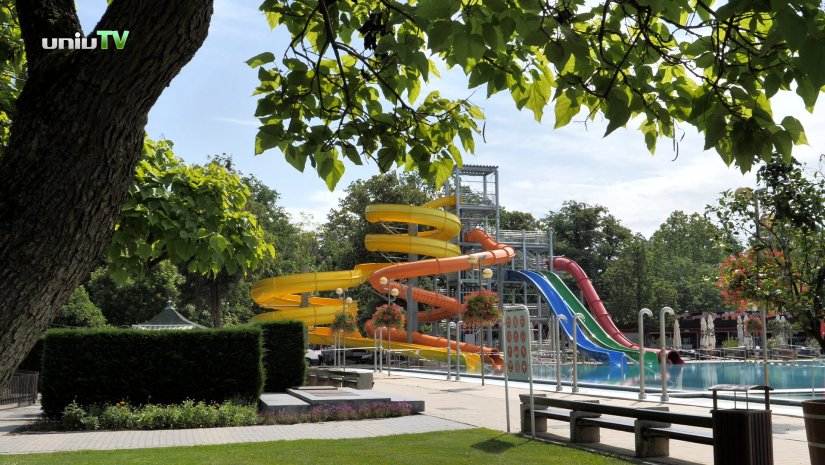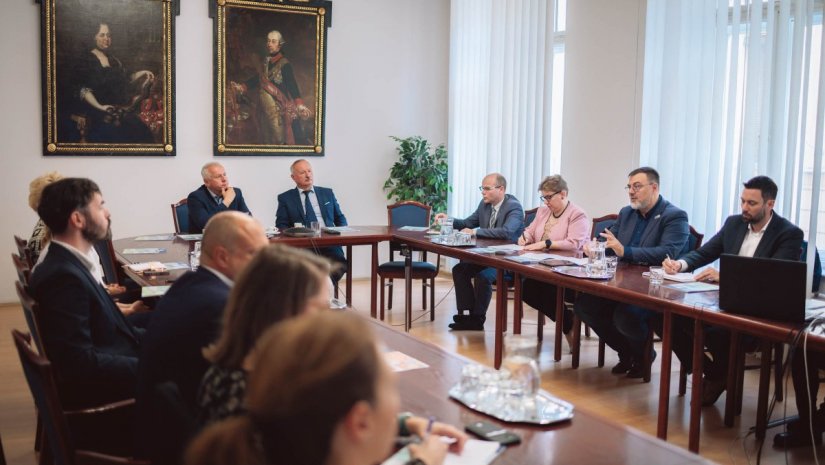On the vibrant morning of 7th May, the halls of the Rector’s Cabinet reverberated with intellectual discourse and cultural celebration as it welcomed esteemed delegates from four distinguished universities of Bosnia and Herzegovina. This auspicious gathering marked the commemoration of Bosnia-Herzegovina Day, a momentous event within the university's acclaimed intercultural series, the International Seasons.

The day unfolded with a spirited roundtable discussion, graced by university leaders from both regions. Professor István Tarrósy, Director of the International Centre at the University of Pécs, underscored the importance of the gathering, expressing, "Today, we unite our efforts and dedicate our time to nurturing the bonds with our esteemed colleagues from Bosnia and Herzegovina.”
Representatives from each university had the opportunity to introduce themselves, offering insights into their institutions' rich histories and academic offerings. Throughout the dialogue, participants delved into multifaceted dimensions of academic collaboration.
Dr. Attila Miseta, the Rector of the University of Pécs, underscored the imperative of nurturing relations and leveraging strengths across institutions.
"The most important thing is obviously to build relations, to know what are our strengths, what are your strengths? Where can we help each other?" elucidated Dr. Miseta.
The roundtable discussion also spotlighted the rich cultural heritage and resilience of Bosnia-Herzegovina. "We encourage academic staff and students to participate in exchange programs and share their knowledge and expertise with their foreign counterparts." - Professor Nermin Sarajlić, Vice-Rector for Science and Research at the University of Tuzla showcased the university's robust internationalization efforts, including participation in mobility programs like Erasmus+ and a network of over 200 cooperation agreements worldwide.

Professor Sanja Bijakšić, Vice-Rector for International Relations at the University of Mostar, passionately articulated the university's commitment to fostering a diverse and inclusive academic environment. "We take pride in our multiethnic composition and vibrant cultural heritage," remarked Prof. Dr. Bijakšić. She highlighted the university's recent accreditation and its strategic focus on internationalization, digitalization, and innovation.

"We have more than 200 bilateral agreements with higher education institutions from all over the world," said Professor Dalibor Kesic, Vice-Rector for Human and Material Resources at the University of Banja Luka. “Internationalization is a strategic priority of the university,” he continued. Professor Ranko Škrbić, Dean of the Faculty of Medicine at the University of Banja Luka, emphasized the importance of collaboration and exchange programs between faculties. He expressed enthusiasm for initiating exchanges between faculties of medicine from different universities, viewing it as a crucial step toward fostering academic partnerships and knowledge sharing.

Professor Amalia Ramović, Vice-Dean for International Cooperation at the University of Sarajevo, spoke passionately about the resilience of Sarajevo's artistic community during the Bosnian War. She emphasized, "Art is a way in which we as humans transcend our fragile and temporary bodies, and our existence somehow becomes transcendental. And this is why the University of Sarajevo recognizes art as one of its core activities." This enduring spirit resonates deeply with Sarajevo's cultural heritage, exemplified by the university's notable achievements, including an Academy Award for Best Foreign Movie in 2002 for "No Man's Land”.

In the words of H.E. Biljana Gutic-Bjelica, Ambassador of Bosnia-Herzegovina to Hungary, "This is an excellent start and opportunity to promote each other's institutions, to keep young people, to keep students in this region."

Professor Tarrósy echoed this sentiment, emphasizing the need for sustained dialogue and collaboration. "Communication at the level of science, education, and innovation will help us to solve problems collectively," remarked Professor Tarrósy. Professor József Betlehem, Vice-Rector of the University of Pécs emphasized:
"International cooperation is a key element for each university, not just in this region but internationally.”
As part of the event, the University of Sarajevo presented a musical program featuring compositions by Bosnian and Hungarian composers, blending Eastern and Western traditions. The performance, led by Belma Alić (cello) and Belma Šarančić (accordion), symbolized Bosnia's rich cultural identity and its historical role as a crossroads of civilizations. Through music, the universities emphasized the importance of cultural exchange and unity amidst diversity, inviting audiences to contemplate the power of the arts in fostering mutual understanding.

In an increasingly interconnected world, events like Bosnia-Herzegovina Day serve as poignant reminders of the transformative power of education in fostering mutual understanding and collaboration across borders. As the University of Pécs looks ahead, it remains steadfast in its commitment to nurturing academic partnerships and promoting cultural exchange for a brighter, more interconnected future.
Through initiatives like the International Seasons event series, we celebrate diversity and spark cross-cultural dialogue. For more, visit their social media pages for updates, event schedules, and engaging content. Join us in embracing cultural richness and forging connections across borders.


